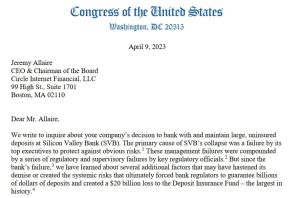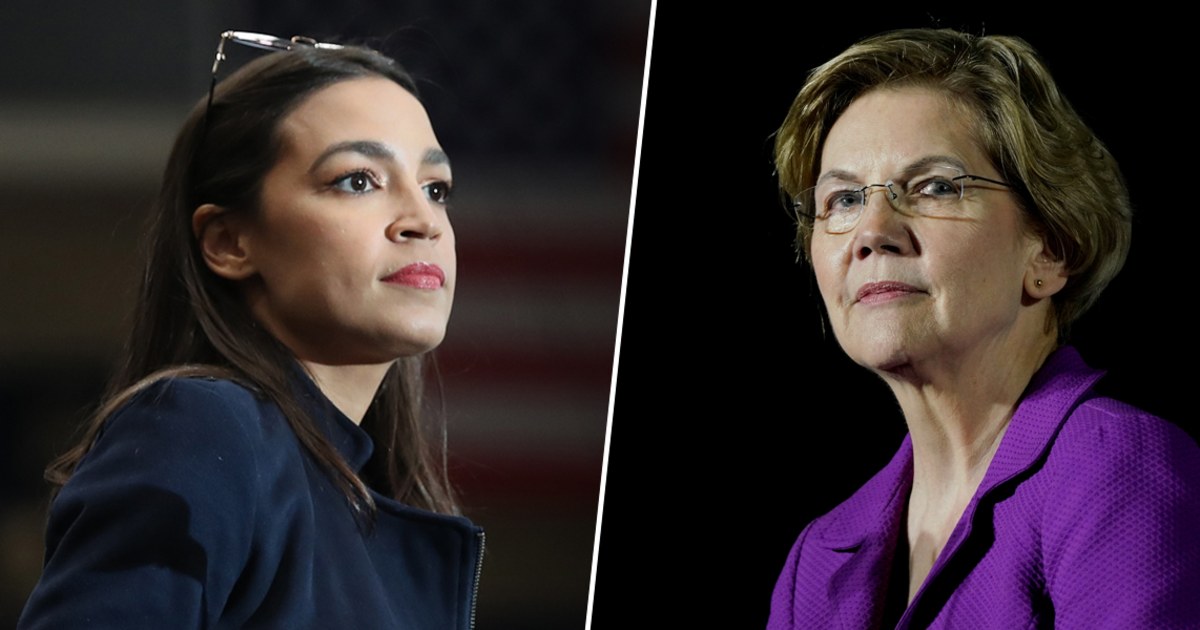Two members of Congress investigating alleged “mutual backscratching arrangements” involving the now-defunct Silicon Valley Bank (SVB) have questioned executives from the stablecoin issuer Circle and the insolvent cryptocurrency lender BlockFi.
Senator Elizabeth Warren and Representative Alexandria Ocasio-Cortez (AOC) sent letters to Circle, BlockFi, and 12 other non-crypto tech companies on April 9 with a series of inquiries regarding each company’s relationship with SVB.
To determine if SVB’s largest depositors played a role in the bank’s failure, legislators stated that more information is required about the bank’s alleged “coddling” and “white glove” treatment of them.
Jeremy Allaire and Zac Prince, the respective CEOs of Circle and BlockFi, were questioned about the duration of their financial relationships with SVB, the quantities deposited with the bank, and the “agreements” between their respective companies.

In addition, they wanted to know if SVB offered “perks” such as low-interest mortgages or “ski excursions, conferences, and expensive banquets” sponsored by the bank.
Warren and AOC wrote, “Congress, bank regulators, and the general public are owed an explanation for the bank’s hyper-reliance on tech industry firms and investors.”
The extent of SVB’s tech industry depositors resulted in “an abnormally high percentage of deposits” not insured by the Federal Deposit Insurance Corporation, and the executives were questioned regarding “the role that companies like yours may have played in precipitating the $42 billion one-day run on SVB.”
“Obtaining information on these factors is essential to comprehending why SVB failed and how to prevent future failures,” they continued.
Warren and AOC believe it may explain why certain consumers, such as Circle, deposited extraordinarily large quantities of uninsured funds with SVB.
Shortly after SVB’s failure, Circle disclosed that it had $3.3 billion in deposits at the bank, while BlockFi had $227 million in uninsured deposits.












